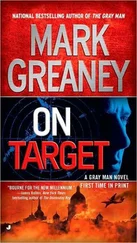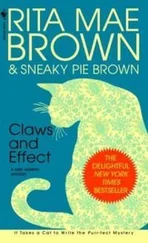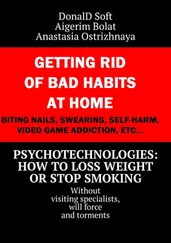Roblas intended to keep his name out of the entire affair. It would appear to the world, if they found out about it at all, as if North Korea itself had played the world mining industry like a Stradivarius, orchestrating the movement of manpower, brainpower, machine and natural resources, bringing everything together. Many would assume the DPRK had outside help, but on this venture, just as in other operations Roblas had undertaken in less permissive parts of the world, he would conduct his part of the business in secret.
In the lists and charts and white papers created by his staff about the hardships of bringing this plan to life, nothing appeared as a more obvious problem than the processing of the ore. Roblas and Hwang could build the mine and extract the ore, and once the ore was refined, Roblas could assist the North Koreans in getting it onto the world market in a way to maximize its value, but the highly technical and intensive processing of the minerals was beyond even the scope of Roblas and his Grupo Pacífico. A few mines around the world did their own processing, but only in the United States, China, and Canada. Even the Australians sent their ore to an Australian operation based in Malaysia to be processed.
But that would not work for the North Koreans. They would have to do it themselves, right there at the mine.
This was yet another crucial matter that he’d have to bring up with Duke Sharps.
Roblas’s Grupo Pacífico had relied on the work of Duke Sharps in New York City for much of its underhanded corporate espionage and investigations in the past decade, so it was a simple matter to contract with Sharps again.
The full scope of the North Korean operation was laid out to Sharps by Roblas himself at a luxury hotel in Saint Maarten. The American ex-spy agreed on the spot—as soon as Roblas agreed on a cost plus fee for the private intelligence firm.
Sharps charged an incredible amount of money for the work he did. Often the brash American infuriated Óscar Roblas by his near-extortionate fees and his occasional reluctance to get his hands really dirty. Sharps would spy, he would break some laws, and he would push some boundaries, but a man in Roblas’s line of work occasionally needed extreme measures taken, and Sharps was too aboveboard to do the real dirty work.
But Sharps and his people had their place. They would help get foreign nationals into North Korea, they would help move material and steal proprietary software needed for the production facility, they would pressure elected officials and UN members to vote the way the North Koreans desired to keep the money and the material moving. In the final analysis, even though Duke charged too much and refused to assassinate, kidnap, or beat Roblas’s enemies, the businessman in Óscar Roblas knew that Duke Sharps and his staff were worth every damn cent.
15
Present day
John Clark’s mobile phone’s alarm began chiming on his desk, and he looked away from the paperwork in front of him and turned it off. He sighed a little. It was ten a.m., time to do his daily exercises.
Damn, he thought to himself. Ten o’clock comes around every day, doesn’t it?
He got up and shut the door to his office, then opened a drawer in his desk and removed a blue racquetball. He sat back down in his chair, took the ball in his right hand in front of him, and began squeezing with all his might.
Clark did all manner of other exercises in a small gym he’d built for himself in his Emmitsburg, Maryland, farmhouse, but the workout he did there he actually enjoyed. His hand therapy, on the other hand, was miserable.
Clark’s hand had been smashed by torturers in Russia a couple of years back, and despite a half-dozen reconstructive surgeries in the intervening years the index finger on his right hand was still both stiff and weak. Arthritis and scar tissue around the small joints of the appendage were the root cause of the problem, and his surgeon had told him he’d done all he could to repair the damage. John asked the man what John himself could do to improve his situation, and the doctor had replied with a shrug.
“I’d say PT, every day, to strengthen the muscles and stretch the tissue. The only problem is the arthritis in the knuckles. Working out that hand is going to hurt. Every day, it will hurt.”
The doctor thought he was talking a senior citizen into just giving up on a full recovery and enjoying his retirement years in comfort, but the doctor didn’t know John Clark. Clark had happily accepted that ten-second primer on what he needed to do to make the best of his horribly damaged hand, and since that day he’d put himself through an excruciating daily twenty-minute regimen of stretching and strengthening.
The doc had been correct. Yes, it hurt. A lot. Every day. And even with all the pain and suffering, Clark’s trigger finger was still so noncompliant he’d taken to firing guns with his middle finger, resulting in the joke around The Campus that when Clark flipped you the bird, he really meant it. But his hand had improved markedly in the months he’d been putting himself through his daily ten a.m. torture session.
He squeezed down on the ball, and white-hot flame grew in the back of his hand and it shot up his index finger. He winced with pain.
And his office door flew open.
Clark quickly put the ball down and looked up at the doorway. Jack Ryan, Jr., stood there with a sheet of paper clutched in his hand. There was a wide grin on his face.
“Do you knock, kid?”
“Sorry, John,” Ryan said, but he looked too excited to mean it.
Clark blew out a long sigh. “What do you have?”
“Skala.” When Clark did not react to this, Ryan said, “Remember the name Hazelton wrote before he died?”
“Of course. Who is he?”
“Hazelton said he had something to do with Prague airport. It looked like a dead end, since we couldn’t find anyone by that name associated with the airport. But finally I found a guy named Karel Skála, who is a low-rung consular official in the Ministry of Foreign Affairs in the Czech Republic who works in the bureaucracy of the European Union. He operates out of an office at the Ministry of Foreign Affairs building in Prague, so I didn’t see a connection. But after some more digging, I see that by appointment he will meet traveling EU diplomats at the customs and immigration office at Václav Havel Airport.”
Clark was impressed. He said, “Not too far of a stretch to speculate this guy gave something to Hazelton, and that was what the North Koreans were after. What might he have that interested them?”
Clark knew the answer to the question he had posed. He just wanted to see if Ryan would get it as well.
Ryan answered confidently. “Probably travel documentation. That’s foreign ministry territory. Issuing passports, entrance visas, or other EU documentation. Skála’s particular job involves preparing travel documentation for Czech diplomatic employees. This guy knows what he gave Hazelton, which means he probably knows why someone killed Hazelton. I say we pay the man a visit.”
Clark stood. “Let’s grab the guys and then go talk to Gerry.”
—
Twenty minutes later Gerry sat in the conference room surrounded by all the Campus operators. He rubbed his temples. “You want to go to the Czech Republic and find out what you can about this Skála character.”
“That’s right,” said Ryan.
“Covertly or overtly?”
“Covertly, for sure.”
Gerry looked at Clark. “What do you think, John?”
Clark said, “I’m for it. We can send Ryan and Caruso to Prague. While they are there, the rest of us will go up to New York. I want to put some resources into learning a little more about what Sharps Global Intelligence Partners is up to.”
Читать дальше












